Karl Marx (1818 – 1883) was a German philosopher, economist, journalist and revolutionary who is one of the most influential figures in history due to the impact of his theories on subsequent intellectual, economic and political history. His most famous works include the Communist Manifesto, one of the world’s most influential political manuscripts; and Das Kapital, the foundational theoretical text of communist philosophy, economics and politics. Among the most influential theories of Marx are the theory of historical materialism based on class struggle; and the theory of alienation of workers under capitalist conditions. Marx is considered the father of modern sociology and his work in economics laid the foundation for understanding labor and its relation to capital. Know about the contributions of Karl Marx to economics and sociology, as well as his theories regarding capitalism and communism, through his 10 major accomplishments.
#1 HE PUT FORWARD THE THEORY OF ALIENATION
The notion of Alienation is central to Marx’s early writings. He first expressed his theory of alienation in his Economic and Philosophic Manuscripts of 1844, which were unpublished in his lifetime. In the work, Marx depicts the worker under capitalism as suffering from four types of alienated labor. First, from the product, which is determined by the capitalist class and over which he had no control; second, from the process of production, as he is controlled and told what to do and his labor is not voluntary but due to wage compulsion; third, from himself, as during work he does not belong to himself but to another person and as he cannot develop the many sides of his personality but has to work as a cog in a gigantic production apparatus; and fourth, from other workers, as he is pitted against them in a competition for “higher wages” and as he is part of a competitive labor-market instead of a collective effort for the betterment of society. Marx’s theory of alienation is one of the most influential concepts of his early work.
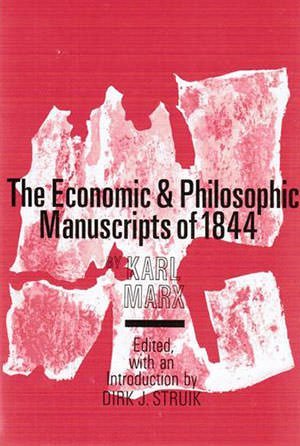
#2 HE AUTHORED THE FAMOUS THEORY OF HISTORICAL MATERIALISM
One of the most important contributions of Karl Marx is his theory of historical materialism. It is stated most comprehensively in Die Deutsche Ideologie (The German Ideology), a set of manuscripts co-authored by Marx and Friedrich Engels in 1846. Marx’s theory of history sees human society as being fundamentally determined at any given time by its material conditions, or the relationships which people have with each other for producing and reproducing the means of human existence. Marx identified six successive stages of the development of these material conditions in Western Europe: primitive communism; slave society; feudalism; capitalism; socialism; and communism. He thoroughly analyzed capitalism as it was the stage he lived in and he predicted that it would eventually be replaced by first socialism and then communism. Marx’s theory of history is centered around the idea that forms of society rise and fall as they further, and then impede the development of human productive power.

#3 HIS CONCEPT OF CLASS STRUGGLE WAS HIGHLY INFLUENTIAL
Instead of conceiving society as being based on consensus, Karl Marx established a conflict model of social systems. Class struggle is tension which exists in society due to competing socioeconomic interests and desires between people of different classes. Marx believed that class struggle played the pivotal role in the history of class-based hierarchical systems such as capitalism. He identified capitalist society as containing two main social groups: the Labor (the proletariat or workers), who earn their livelihood by selling their labor power and have little choice but to work for the capitalists; and the Capital (the bourgeoisie or capitalists), who get their income from the surplus value they appropriate from the labor who create wealth. The income of the capitalists is thus dependent on their exploitation of the workers. Class struggle is central to Marx’s theory of history and has had an enormous influence on sociology and study of human culture.
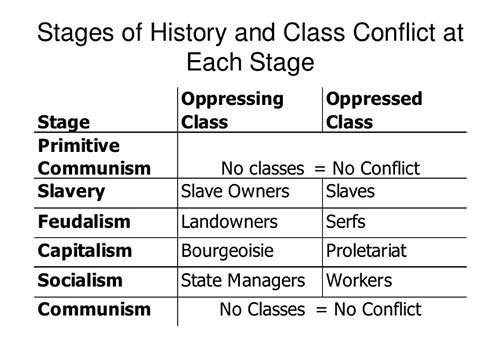
#4 MARX CO-AUTHORED THE COMMUNIST MANIFESTO
In 1846, Karl Marx and his close friend Friedrich Engels established a small political circle in Brussels known as the Communist Corresponding Committee. The League of the Just was a socialist group which had been founded by German émigrés in Paris in 1836. In June 1847, the League of the Just merged with the Communist Corresponding Committee to establish an international political party called Communist League, which remained in existence till 1852. Marx and Engels jointly wrote the Manifesto of the Communist League, which was first published on 21 February 1848. The Communist Manifesto is divided into a preamble and four sections. The preamble urges the Communists to openly publish their views and aims; the first section contains Marx’s materialist conception of history; the second section expresses the will of the party to defend the common interests of the world’s working class; the third section distinguishes communism from other socialist doctrines prevalent at the time; and the last section discusses the communist position on struggles in various countries in the mid-nineteenth century.
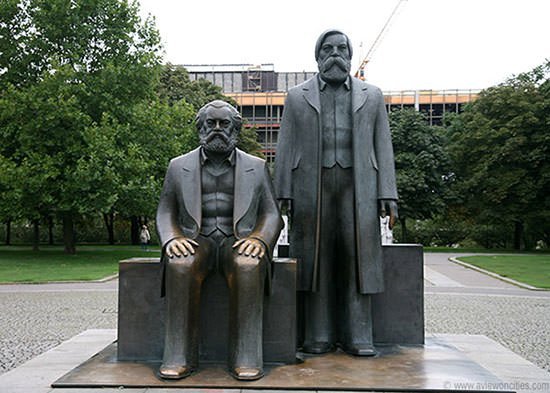
#5 COMMUNIST MANIFESTO IS CONSIDERED AN INFLUENTIAL POLITICAL MANUSCRIPT
The Communist Manifesto had an influence, restricted to Germany, during the Europe-wide revolutions of 1848. For forty years, from 1870s to 1910s, due to the rise of social-democratic parties, hundreds of editions of the manifesto in thirty languages were published across Europe and in parts of the world. The principal region of its influence was the “central belt of Europe”, from Russia in the east to France in the west. Following the successful Russian Revolution, the world’s first socialist state was founded explicitly along Marxist lines and it was required for the political class to know the Communist Manifesto. The text gained in influence across the world and entered political-science syllabuses in many universities. Even after the collapse of the Soviet Bloc in the 1990s, the manifesto remains widely read and many consider it as a valuable insight into the society in which we live today as well as an explanation for today’s world of recurrent wars and repeated economic crisis. The Communist Manifesto is considered as one of the world’s most influential political manuscripts.
#6 HE WROTE THE GROUNDBREAKING WORK DAS KAPITAL
Das Kapital (Capital: Critique of Political Economy) is a three volume work by Karl Marx. The first volume was published in 1867; while the second (1885) and third (1895) were published after his death due to the effort of his collaborator Friedrich Engels. The principle idea of the work is that the motivating force of capitalism is in the exploitation of labor, whose unpaid work is the ultimate source of surplus value. According to Marx, it was not the pressure of population that drives the salaries of the worker to subsistence level (the minimum level to support oneself) but rather the existence of a large army of unemployed, which is in absolute interest of the capitalists and increases with accumulation of capital. According to Das Kapital, the capitalist system is doomed to collapse as the “capitalist class becomes unfit to rule, because it is incompetent to assure an existence to its slave within his slavery.” It is then replaced by a system where the working class inherits economic and political power. Das Kapital is the foundational theoretical text of communist philosophy, economics and politics; and one of the most influential works in history.
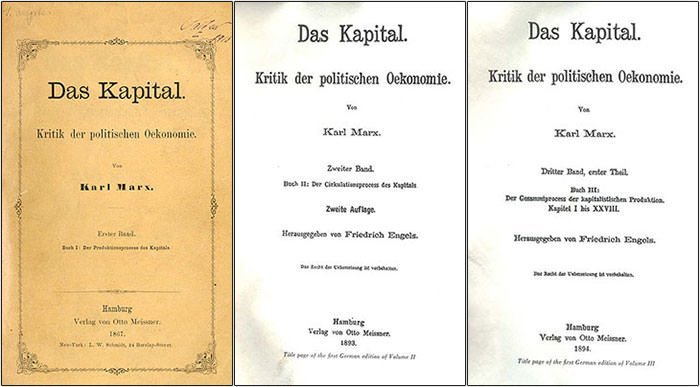
#7 HE WAS A LEADING MEMBER OF THE FIRST INTERNATIONAL
In 1864, the International Workingmen’s Association (IWA) was founded in London. Also known as the First International, IWA had a considerable influence as a unifying force for labor in Europe during late 19th century; and at its peak, it was reported to have around 8 million members. Marx was a key member of IWA and drew up the fundamental documents of the organization. The IWA played a part when the citizens of Paris rebelled against their government and held the city from 18 March to 28 May 1871. During this time the city was governed by a radical socialist and revolutionary government known as the Paris Commune. The Commune was ultimately suppressed by the French army. In response to this bloody suppression, Marx wrote one of his most famous pamphlets, The Civil War in France. In 1872, the IWA started to decline and split into two; a socialist wing under Karl Marx and an anarchist faction led by Mikhail Bakunin.

#8 HE LAID THE FOUNDATION FOR UNDERSTANDING LABOR AND ITS RELATION TO CAPITAL
Karl Marx made several important contributions to economics. According to Marx, ‘economic science’ cannot exist separately from sociology, history etc.; and there are no eternal economic laws as they change with the mode of production. Thus to reduce economic problems to purely material was considered mystification by him; and his economic analysis is characterized by a sense of historical relativism. Among his well known theories is the labor theory of value (LTV) which argues that the economic value of a good or service is determined by the total amount of socially necessary labor required to produce it. Political economics based on the writings of Karl Marx is known as Marxian economics. Several of its concepts, like those related to capital accumulation and the business cycle, are used in capitalist systems. The work of Karl Marx in economics influenced subsequent economic thought and laid the basis for much of the current understanding of labor and its relation to capital.

#9 He IS CONSIDERED THE FOUNDER OF MODERN SOCIOLOGY
Social science is a major academic discipline which is concerned with society and the relationships among individuals within a society. The main social sciences include economics, political science, demography and sociology. Sociology is the systematic study of society and human social action. Along with Émile Durkheim and Max Weber, Karl Marx is considered one of the three principal architects of modern social science. He is also regarded as the founder of modern sociology. In contrast to previous philosophers, Marx offered theories that could often be tested with the scientific method. Key concepts of Marxist sociology include historical materialism, modes of production and the relation between capital and labor. It is primarily concerned, though not limited to, the way economics define social roles and expectations. Marx’s notion of metabolic rift, which occurs due to ecological crisis tendencies under capitalism, is considered the predecessor to modern environmental sociology.
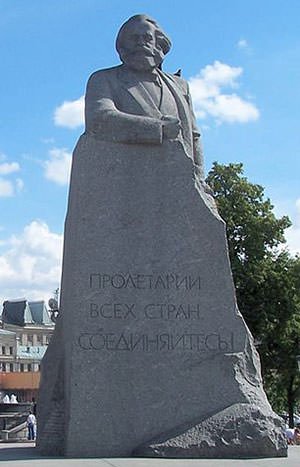
#10 HE WAS ONE OF THE MOST INFLUENTIAL FIGURES IN HISTORY
Karl Marx was one of the most influential figures of the 19th century. His work influenced subsequent intellectual, economic and political history. Throughout the twentieth century, revolutions in dozens of countries labeled themselves ‘Marxist‘, most notably the Russian Revolution, which led to the foundation of the world’s first socialist state, the Soviet Union. Major world leaders including Vladimir Lenin, Mao Zedong and Fidel Castro cited Marx as an influence. However, the original ideas of Marx have often been modified and many movements have not been faithful to his works. Karl Marx also provided a revolutionary critique of nineteenth-century capitalism and many believe that his theories on the exploitative relationship between capitalist employers and their employees remain valid till today. Even though he remains a controversial figure, Karl Marx is still regarded as one of the greatest thinkers in history.

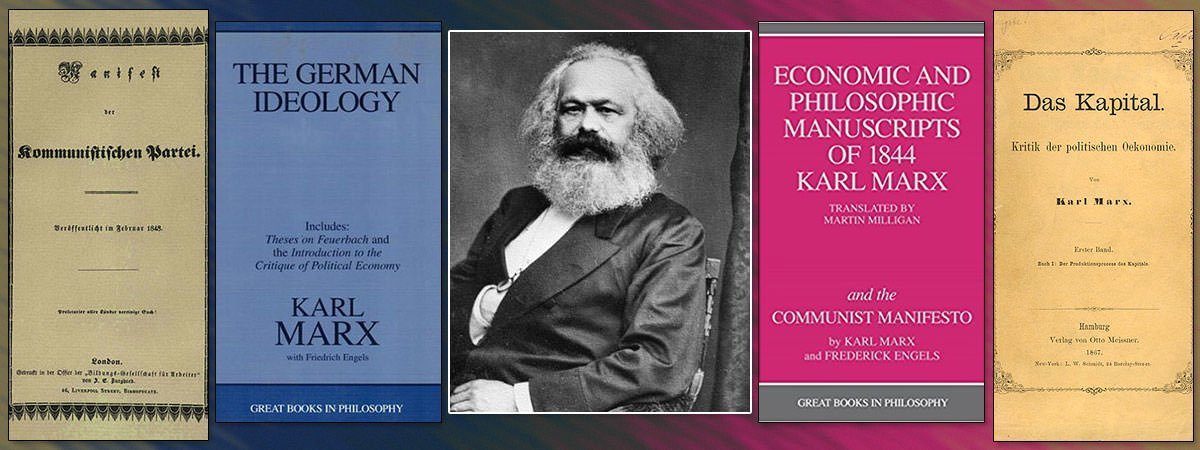
This is detailed…I appreciate it…guess I will learn more
Thanks for your appreciation.
It helped me
Happy to help.
Thanks for a lot of informations
You’re welcome
Love your “name”. At least two of Marx’s children COMMITTED SUICIDE. Marx freeloaded off his buddy, the wealthy leftist/capitalist Friedrich Engels. Marx’s “philosophy” caused the death of over 100 MILLION human beings in China, the Soviet Union, Cuba, Vietnam, Cambodia, and many other Marxist “utopias”. Yeah, Marx was great….
It’s not as easy as saying that though, what you don’t understand is that the ideals of many of the leaders that endorsed genocide strayed very far from Marx’s original message and teaching. Marx was, as much as anything else, a prophet and visionary who gave hope to millions that a life of endless, exhausting, exploited toil was not an inevitable lot of most of humanity. He was essentially a utopian thinker (though he disliked the term) who posited the ideal of a future good life, and then demanded that humanity seek this end. Stalin, Lenin and Mao are three examples of people who made their own political ideology but labelled it under communism, blaming Marx. Think before you speak
First read Das Capital/ Then make your comments. Those who have read Das Capital never says he is wrong. The so called economist of today refer to Das Capital as the ultimate source for finding solution. During his period the child labour also very common. It was high lighted by Karl Marx. Even today females are paid less than their male counterpart. This was also pointed out in Das Capital.
I have read Das Kapital. He is wrong as he does not seem to understand human nature.
1. What does suicide have to do with anything? 2. The 100 million number is a gross exaggeration and has been roundly debunked. It comes from a book where even the other authors condemned the renegade author from using wild exaggerations such as this number. 3. The ideas of Marx didn’t cause any death. The bastardization by authoritarian dictators like Stalin, however, did cause those deaths.
Rather than just regurgitate bogus nonsense that could easily be dispelled by some internet searches, why not just read it yourself? Then maybe you can hate it for an actual reason and we can all have a more informed debate instead of this nonsense.